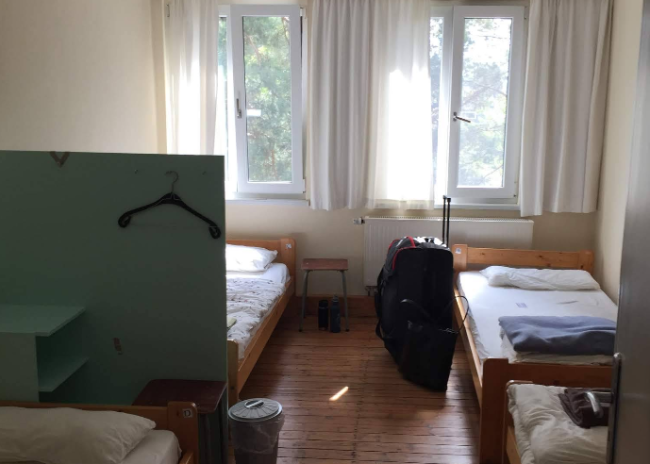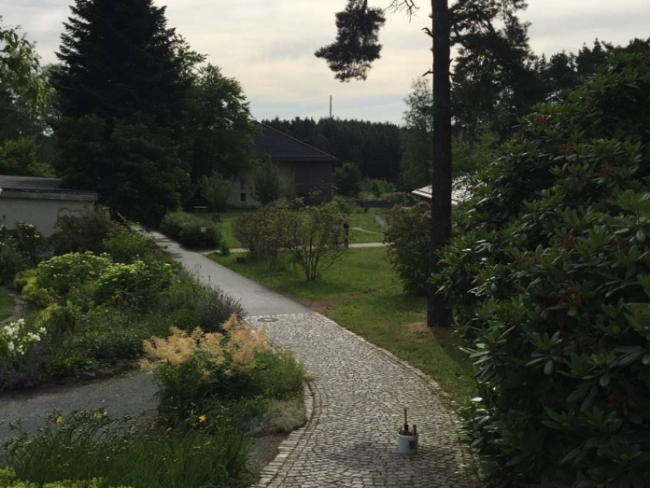Is a Vipassana 10 Day Meditation Retreat Near Berlin Worth It?
Is a 10‑Day Vipassana Meditation Retreat Near Berlin Worth It?
(Spoiler: If you have five free days in a row, the answer is still probably “yes”, but here is the full picture so you can decide.)
Quick take
- Deep reset, zero cost. Centers in the Goenka tradition run entirely on donations.
- Harder than it looks. Ten hours of silent sitting every day, a 4:00 a.m. wake‑up, no phone or reading.
- Life changing for many, though not everyone. Research shows gains in well‑being, but the schedule can surface difficult emotions.
1. What is Vipassana?
Vipassana, a term from Pāli meaning “clear insight”, trains you to watch every sensation in your body without judging or reacting. The official courses follow a strict code of discipline: no devices, reading, writing, exercise or even eye contact. The idea is to direct every bit of attention inward.
2. Where can you do it near Berlin?
| Centre | Distance from Berlin | How to get there | Good to know |
|---|---|---|---|
| Dhamma Dvāra (Triebel, Saxony) | about 295 km | Berlin Hbf → Plauen by Deutsche Bahn (3 h 35 m), then local train and bus (1 h 30 m) | Two ten‑day courses most months, instruction in German and English, dorms with 250+ beds |
| Dhamma Pallava (near Szczecin, Poland) | about 240 km | Regional train Berlin → Szczecin, then centre shuttle | Smaller site, bilingual English/Polish, shorter wait list |
Applications open three months before each course at 20:00 CET sharp. Popular summer dates fill up within minutes.
3. A day in the life

| Time | Activity |
| 04:00 | Wake‑up bell |
| 04:30–06:30 | Meditation in the hall or your room |
| 06:30–08:00 | Breakfast and short break |
| 08:00–09:00 | Group sitting |
| 09:00–11:00 | Practice blocks with teacher instructions |
| 11:00–12:00 | Vegetarian lunch |
| 12:00–13:00 | Rest or teacher interviews |
| 13:00–17:00 | Practice blocks with a tea break |
| 18:00–19:00 | Evening group sitting |
| 19:00–20:15 | Video discourse with S. N. Goenka |
| 20:15–21:00 | Final sitting and questions |
| 21:30 | Lights out |
4. Why people say it changes their lives
- Measurable boost in well‑being and mood
- Less stress and rumination
- Better heart‑rate variability (a sign of calm nervous system)
- Ten‑day digital detox that makes everyday habits obvious
Many Berlin‑based alumni say their first S‑Bahn ride after the course feels like watching their mind on a cinema screen.
5. What can make you leave on day two
- Physical strain from long sitting
- Unexpected emotional turbulence
- Early mornings and no dinner (fruit and tea only at 17:00)
- Monastic rules, separate dorms, no exercise beyond walking paths
Roughly five percent of first‑time students choose to leave, usually within the first forty‑eight hours. If you have severe unresolved trauma or are in an acute mental‑health crisis, talk with a professional first.
6. Cost and booking
- Tuition: free. Centres are sustained by voluntary donations from past students.
- Travel: Super‑sparpreis tickets from Berlin to Plauen start around 22 € if you buy early.
- Application: online form with a brief health questionnaire. Confirmations arrive four to six weeks before the course.
7. Two‑week prep checklist
| Days before | To do |
| 14 | Build up to thirty minutes of daily sitting, practise eating a light supper |
| 10 | Arrange time off and set an auto reply explaining you will be offline |
| 7 | Borrow or buy a meditation cushion you will keep using afterwards |
| 3 | Pack loose layers, slippers and unscented toiletries |
| 1 | Download your train ticket and bus schedules |
| 0 | Leave your phone charger at home, you will not need it |
8. Verdict

If you are curious about meditation and can spare ten consecutive days, a Vipassana retreat at Dhamma Dvāra is one of the most affordable personal development experiments you can try. You will pay only your travel costs and whatever donation feels right, yet you might return with a practice that lasts much longer than any spa weekend.
It is hard work, not a vacation. The schedule is strict, the silence can be confronting, and there are no Instagram moments. Go in ready to be uncomfortable and you may come out calmer, clearer and less reactive, which is useful when Monday morning arrives on the U‑Bahn.
Bottom line: For most healthy adults willing to commit, the retreat is well worth it. If you are in acute psychological distress or cannot sit still for five minutes, it might be better to wait.
If in the meantime you want to learn to meditate daily and consistently, check out our courses at dailymeditationberlin.de
